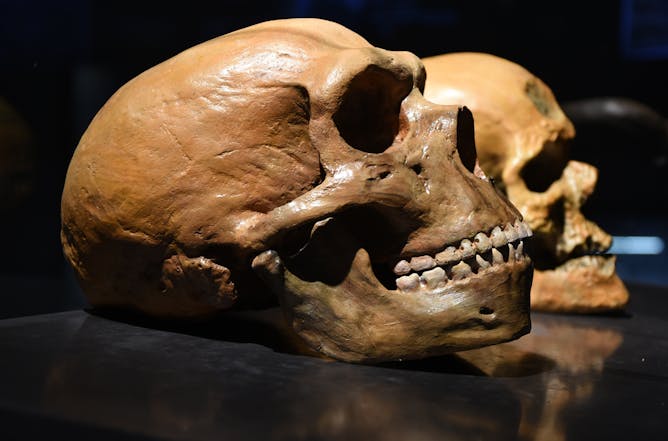|
|
|
|
Working from home during the pandemic certainly has its fair share of challenges, but it also has its perks – such as a seconds-long commute, more time to exercise and, perhaps, the opportunity to squeeze in a much-needed afternoon nap.
So instead of reaching for another cup of coffee during the afternoon slump, perhaps trade in a few minutes of your lunch break for some extra shut eye. Not only would you be in good company (with famous figures such as Albert Einstein and Leonard Da Vinci both favouring an afternoon nap), but there are also plenty of unexpected benefits to napping.
Not only are short 15- to 30-minute “power naps” great for bringing an extra burst of energy and alertness, but longer naps (if you’ve got the time) are even shown to benefit learning, memory, and cognitive function. As John Axelsson and Tina Sundelin explain, the many complex neural processes that take place while we nap are largely responsible for helping our brain stay in good shape.
Researchers have also answered questions about how the human brain differs from that of our closest evolutionary relatives by taking the extraordinary step of using ancient genes from Neanderthals to grow “mini brains” in the lab.
And Stephen Reicher highlights the need to maintain new links between academia and policymakers forged amid the pandemic. The article marks the launch of the International Public Policy Observatory (IPPO), a new initiative to inform post-COVID policy making with the latest global research. The Conversation is a partner of the project.
|
Heather Kroeker
Commissioning Editor, Health + Medicine
|

|
|

Short and long naps both have benefits.
Rawpixel.com/ Shutterstock
John Axelsson, Karolinska Institutet; Tina Sundelin, Stockholm University
Napping in the afternoon can benefits both motor skills and your ability to recall facts.
|

The brains of humans are subtly different from those of Neanderthals.
Petr Student/Shutterstock
Itzia Ferrer, Lund University; Per Brattås, Lund University
Neanderthal-human hybrid brains grown in the lab give fascinating insights into evolution.
|

Mongkolchon Akesin/Shutterstock
Stephen Reicher, University of St Andrews
COVID-19 has highlighted the need to address the different cultures of academia and policymaking.
|
Health + Medicine
|
-
Maureen Ferran, Rochester Institute of Technology
The Johnson & Johnson vaccine is different from the Moderna and Pfizer vaccines in a few important ways that could make it a huge help to global vaccination efforts.
-
Vikki Rand, Teesside University; Maria O’Hanlon, Teesside University
Genes that control blood type and are involved in inflammation have been associated with more severe disease.
|
|
Environment + Energy
|
-
Bruce Sutherland, University of Alberta; Michelle DiBenedetto, University of Washington; Ton van den Bremer, Delft University of Technology
Each bit of plastic takes a unique journey once it reaches the ocean. We're trying to spot the patterns.
-
Jackie Abell, Coventry University
Presenting accounts of technological success in captive lion breeding against the backdrop of rapidly diminishing wildlife loss lets humans off the hook too easily.
|
|
Arts + Culture
|
-
Kiera Vaclavik, Queen Mary University of London
Where solitary reading drives us into ourselves, reading aloud can be a deeply sensuous experience
-
Beth Johnson, University of Leeds
Despite repeated pledges to improve diversity, data and industry testimony shows that there are fewer people from minority backgrounds getting jobs in the film and TV industries.
|
|
Business + Economy
|
-
Larisa Yarovaya, University of Southampton
Shares in the gaming chain and other stocks like AMC and BlackBerry are soaring once again.
-
Dave Cook, UCL; Anna Rudnicka, UCL; Joseph Newbold, Northumbria University, Newcastle
The responsibility should not simply lie with employees who are working even harder.
|
|
Politics + Society
|
-
Lorena De Vita, Utrecht University; Amir Taha, University of Amsterdam
The 1991 Gulf War was seen as the start of an age of peace, but paved the way for much future conflict.
-
Philip Cowley, Queen Mary University of London
If we care that MPs treat all their constituents fairly, we should support work that tests them on their biases – even the implicit ones.
|
|
Education
|
-
Jan McArthur, Lancaster University
The UK government's announcement on how students work will be graded is too little, too late.
|
|
Science + Technology
|
-
Axel Barlow, Nottingham Trent University; Johanna L.A. Paijmans, University of Leicester
This is the oldest genome recovered from a non-permafrost environment.
|
|
| |
Featured events
|

|
University of Birmingham Facebook (Live), Birmingham, Birmingham, B152TT, United Kingdom of Great Britain and Northern Ireland — University of Birmingham
|

|
University of Birmingham Facebook (Live), Birmingham, Birmingham, B152TT, United Kingdom of Great Britain and Northern Ireland — University of Birmingham
|

|
Online, Birningham, Warwickshire, B15 2TT, United Kingdom of Great Britain and Northern Ireland — University of Birmingham
|

|
East Road, Cambridge, Cambridgeshire, CB11PT, United Kingdom of Great Britain and Northern Ireland — Anglia Ruskin University
|
|
|
|
| |
| |
| |
| |
| |
|
|
|
|
|
|
|